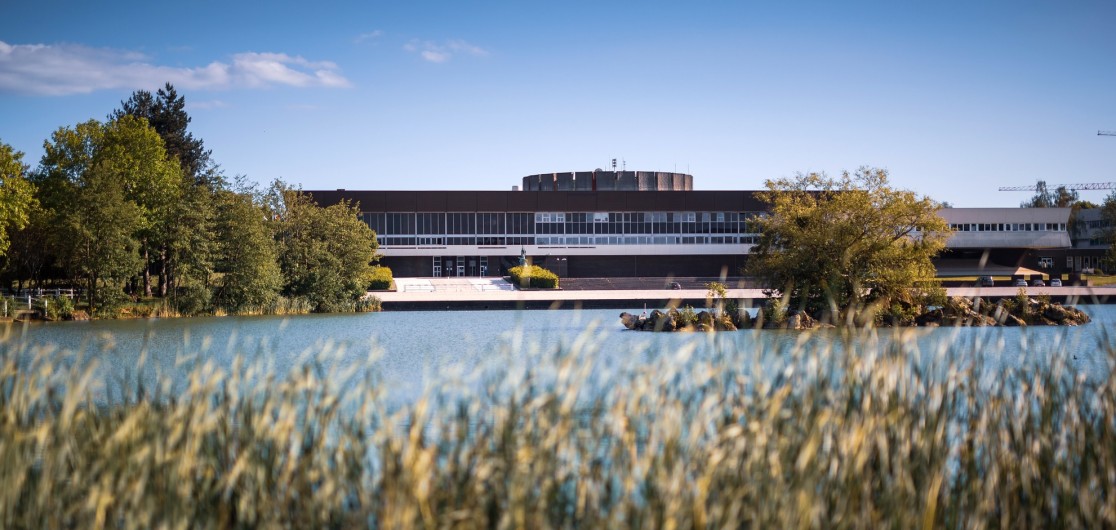École Polytechnique’s Climate Plan: One year of implementation

In one year, École Polytechnique has initiated the implementation of the 10 objectives of its Climate Plan and launched a dynamic in favor of sustainable development within all its communities.
École Polytechnique’s Climate Plan, published at the end of January 2022, integrates sustainable development into its fundamental missions of education, research and innovation and into the operation of its campus. It sets ten achievable objectives over five years, grouped into three pillars - training and commitment, development and innovation, and reduction and empowerment - to transform behavior in depth and contribute to the advent of responsible and sustainable prosperity.
As for the "Training and Commitment" axis, École Polytechnique has delivered its first sustainable development certificates to students of the X19 class. This voluntary certification validates in-depth training on sustainability issues for the Cycle ingénieur Program students and MSc&T students. It continues to grow, with 105 students enrolled for the class of 2021, including 82 Cycle ingénieur Program students and 22 MSc&T students.
The School organized the 4th edition of its Sustainable Development Seminar, which brought together 630 participants - Engineering students and Bachelor students - for two days of conferences and workshops as well as passing the Sullitest to assess participant’s awareness of sustainability issues.
Representatives of the various education departments have begun to work together to develop a process to integrate the ecological transition in all courses. This first step will be extended in 2023 by an in-depth study of the educational programs in relation to the United Nations' sustainable development objectives.
The integration of sustainable development into the training plan for École Polytechnique’s staff and faculty will be effective in 2023.
E4C is moving forward
In terms of research and innovation, the interdisciplinary Energy for Climate Center (E4C), launched in 2019, has benefited from €15 million in fundraising in 2022, including €8 millions in the form of sponsorship with the launch of the Ifker Climate Fund, €1.5 million in funding from Engie, and €5.5 millions as part of the fourth Programme d'investissement d'avenir (PIA4), ExcellenceS.
Since its creation in 2019, E4C has produced 46 scientific publications and contributed to the first MEDDEC report, the Mediterranean IPCC. It also participated in the report of GREC Ile-de-France, a regional group of expertise on climate change and ecological transition, driven at the end of 2020 by the Pierre-Simon Laplace Institute (IPSL), a research institute in climate sciences, and the Institute for Environmental Transition of the Sorbonne University Alliance (ITE).
In collaboration with IPSL, E4C has launched its medialib, which offers 61 initial shared educational resources on the themes of energy transition and sustainable development.
E4C has continued to develop new energy management solutions by setting up a range of platforms and prototypes, notably in two of the campus’ buildings.
In 2022, six GreenTech start-ups were supported by the Drahi-X Novation Center, the center dedicated to entrepreneurship and innovation at Ecole Polytechnique, including one, Amphitrite, which came directly from École Polytechnique’s laboratories, and five from outside: Bluenrose Technologies, Sollys, Kalyosphere, H2YAM and Eurobreath.IT.
Energy efficiency on campus
A sure sign that all stakeholders have an increased awareness of the issues and that the solutions are starting to have an impact is that, École Polytechnique has achieved an 8% reduction in electricity consumption per square meter between 2019 and 2022, and a 12% reduct ion in gas consumption.
Years in the making, the project of a ampus centre dedicated to soft mobility materialized in December 2022 and was accompanied by an increase in secure bicycle parking capacity with more than 100 slots created since 2019.
In November 2022, École Polytechnique was praised for its innovative and sustainable procurement policy.
The selective sorting and recycling efforts deployed on campus for several years have been completed with two clothing collection bins positioned as close as possible to student housing facilities.
In parallel with this operational implementation, the École Polytechnique has strengthened the governance of the Climate Plan in 2022.
In order to prepare for its development and ensure its follow-up, it has set up a Strategic Committee, supported in its thinking by an Advisory Board made up of key outside experts. The Sustainable Development Delegation coordinates and supports projects across the School's departments and laboratories. A Steering Committee brings together the community of project leaders and ensures that the cross-functional nature of this large-scale plan is maintained.
 Support l'X
Support l'X